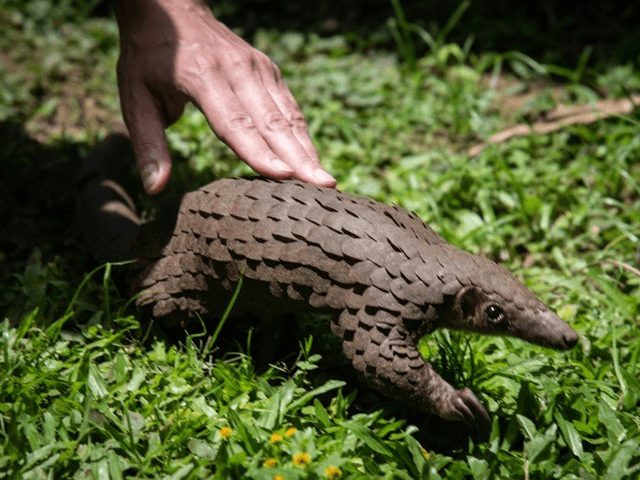Police in the southern Guangdong province busted a wildlife-smuggling ring sitting on eight tons of pangolin scales worth about $62 million, among other illegal animal products, Chinese state media reported Wednesday.
The wildlife trade looms large in most theories of the Wuhan coronavirus outbreak in 2019 that went on to ravage the entire planet.
China’s Global Times estimated the smugglers must have killed 16,000 pangolins to obtain the scales in their possession when the police moved in. The gang also dealt in endangered wild birds, including live specimens.
Pangolin scales are considered valuable in traditional Chinese medicine – so valuable that Asian pangolins are among the most widely trafficked animals on the black market and have become an endangered species. Pangolin meat is also considered a delicacy in some circles.
Police arrested 17 suspects from the wildlife smuggling ring in July 2020, investigated the operation for another six months, and “finally cracked the entire smuggling organization and arrested another 16 suspects,” according to the Global Times.
“In June 2020, China upgraded pangolins to the first-class protected wild animal category and later that year, the 2020 version of the Chinese Pharmacopoeia excluded pangolins, meaning that the mammal was officially removed from the list of ingredients of traditional Chinese medicine,” the Global Times noted.
Left unmentioned by the Chinese Communist newspaper was that pangolins have frequently been touted as a possible source for transmitting the Wuhan coronavirus to humans, including theories the Chinese government itself has floated.
Despite an extremely intensive search involving tens of thousands of tests, no firm evidence of pangolins or any other animal spreading Chinese coronavirus to humans has been uncovered. The absence of such evidence, which should be abundant if the allegedly “most likely” theory of natural origins for the pandemic was accurate, fueled growing suspicions that the disease escaped from a Chinese laboratory.
China’s wildlife trade – largely illegal on paper, but a crime stubbornly indulged by the heavy-handed authoritarian government until the coronavirus outbreak – has long been a sore spot with international health agencies and animal rights organizations. Before 2020, the $74 billion wildlife trade was seen as too valuable to completely shut down without wrecking rural economies. At its height, China’s wildlife farming and transportation industry had an estimated 14 million employees.
Wildlife smuggling is now more firmly illegal, and the Global Times report would suggest the laws are being more vigorously enforced in the wake of the pandemic, but the size of the smuggled inventory seized in Guangdong indicates demand remains high, and big money can still be made.


COMMENTS
Please let us know if you're having issues with commenting.